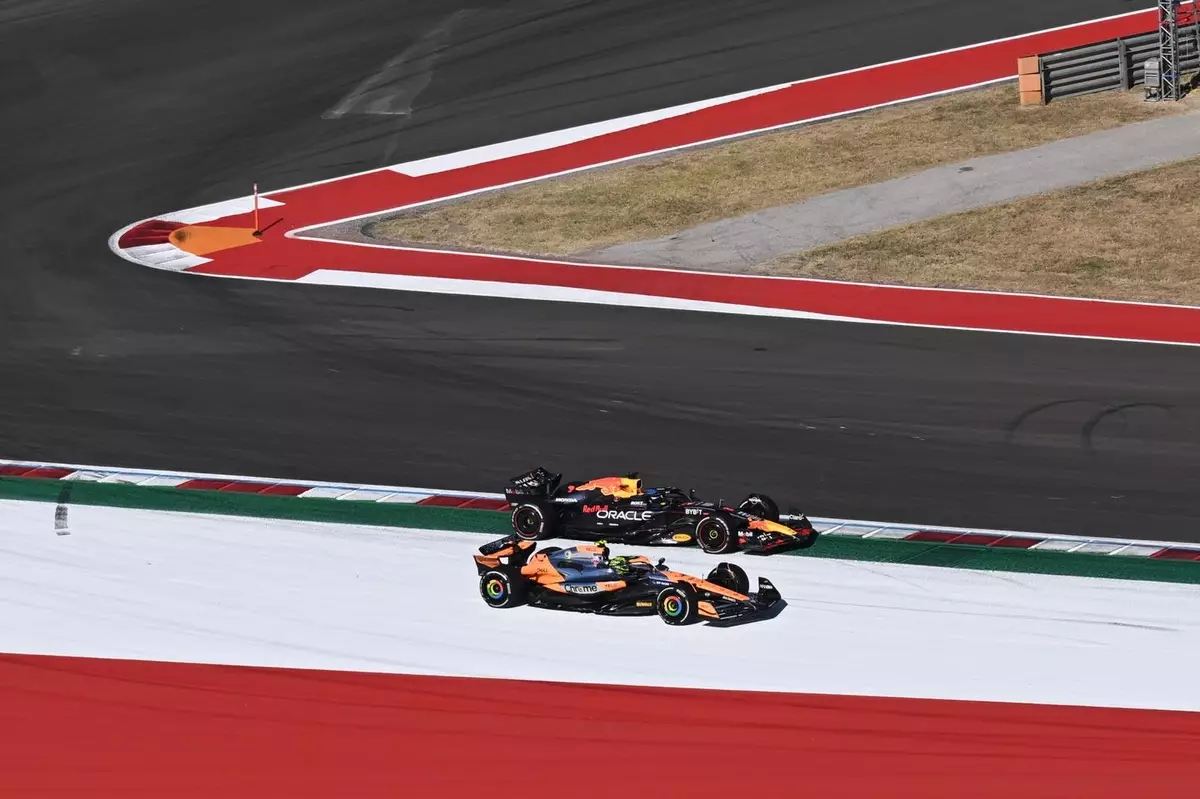The world of Formula 1 is one where stakes are perpetually high, rivalries intense, and decisions from stewards can sway the outcome of races and championships. An incident that has recently captured attention is the right of review request filed by McLaren concerning Lando Norris’s five-second penalty during the United States Grand Prix. This situation serves as a microcosm of the complexities and challenges inherent in contemporary motorsport governance.
During the latter stages of the race in Austin, Lando Norris found himself embroiled in a spirited contest with Red Bull’s Max Verstappen. The climax of this pursuit resulted in Norris overtaking Verstappen while both cars were navigating off the track, leading to the controversial penalty being imposed. The essence of the steward’s decision revolves around the interpretation of track limits and racing ethics, emphasizing the ongoing debate about what constitutes fair competition in such a high-stakes environment.
Following the race, McLaren’s decision to initiate a right of review reflects the team’s commitment to challenge the ruling that they believe mischaracterizes the on-track dynamics. This right of review is not merely a procedural step; it is enshrined in the FIA’s International Sporting Code under Article 14.1.1, which outlines the conditions under which decision-making can be reevaluated in light of new evidence. However, it is critical to notice the duality of the situation: while the framework for the review exists to safeguard the fairness of the sport, it also invites scrutiny over the criteria used for “significant” and “relevant” new evidence.
One of the central challenges for McLaren is the requirement to present new evidence that was not available at the time of the incident. The FIA allows parties involved in a steward’s decision to request a review if they can substantiate their claim with information that could substantially change the context of the ruling. Whether this will include the pre-emptive analysis surrounding Verstappen’s onboard camera feeds—a point of contention in past cases, notably the infamous 2021 Brazilian Grand Prix—remains to be seen.
If McLaren is to succeed, the emphasis will be on demonstrating how this new evidence directly influences the interpretation of racing conduct. The FIA has historically maintained a consistent stance on certain situations, evident in their earlier rejection of Mercedes’ request for a review of Verstappen’s actions in Brazil. This precedent complicates McLaren’s path, as the stewards will undoubtedly weigh any newly presented evidence against their existing guidelines and previous rulings.
The implications of a successful right of review for McLaren could be profound, not only for Norris but also in the broader context of the championship. Were the penalty to be overturned, it would alter the classification of the race, reinstating Norris to third place and potentially reshaping the narrative of the ongoing title battle. This scenario places an added layer of pressure on not just the stewards and FIA, but on the teams involved, as they navigate the thin line between competitive aggression and rule adherence.
Andrea Stella, McLaren’s team principal, initially expressed skepticism about the availability of new evidence. His remarks underscore the inherent tension within F1 concerning accountability and interpretation of rule violations. While the pursuit of justice for a perceived error is commendable, it is equally crucial to acknowledge the boundary of interpreting racing incidents given the split-second decisions drivers must make during a race.
As the right of review hearing approaches, the foundational question remains: How can the FIA ensure that their rulings are both fair and consistent? The dynamic nature of racing presents a formidable challenge for any regulatory body. The controversies arising from race incidents like Norris’s situation reveal the nuances of racing conduct and the ongoing evolution of the sport.
Conclusively, McLaren’s request for a right of review is not just reflective of a singular incident; it is indicative of a larger discourse surrounding racing ethics, the interpretation of rules, and the pursuit of fairness in Formula 1. As the hearing unfolds, stakeholders from drivers to fans will find themselves at the heart of a pivotal moment, one that could define how racing incidents are assessed and rectified in an increasingly meticulous sport.

